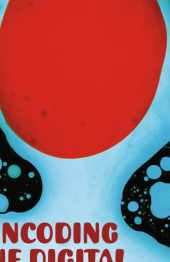 Neuerscheinungen 2013Stand: 2020-01-07 |
Schnellsuche
ISBN/Stichwort/Autor
|
Herderstra▀e 10
10625 Berlin
Tel.: 030 315 714 16
Fax 030 315 714 14
info@buchspektrum.de |

D. Savat
Uncoding the Digital
Technology, Subjectivity and Action in the Control Society
1st ed. 2013. 2013. x, 246 S. 216 mm
Verlag/Jahr: SPRINGER PALGRAVE MACMILLAN; PALGRAVE MACMILLAN UK 2013
ISBN: 1-349-32601-1 (1349326011)
Neue ISBN: 978-1-349-32601-3 (9781349326013)
Preis und Lieferzeit: Bitte klicken
Digital media are having an enormous impact on the world. From the seemingly mundane, like playing World of Warcraft, to posting a message on Twitter or Facebook, to the operation of financial markets, to transformations in science and the economy - digital media continue to revolutionize how people live their daily life. This book challenges how we understand our relationship with our digital machines, and shows how they open up a new capacity for action in the world. A capacity for action that we should no longer simply think of in terms of movement and force, but also in terms of flow and viscosity. A capacity for action that produces a politics of fluids, and finds its expression not only in new forms of social control, but also in a renewed ability for people to engage with the world and each other.
List of Tables and Figures Acknowledgements Introduction PART I: THE DATABASE The Emergence of Modulation Dividuality PART II: THE INTERFACE The Human-machine Assemblage Mechanical Being Digital Being PART III: THE NETWORK Solid Politics Fluid Politics The Boundary Layer Conclusion Notes Bibliography Index
┤This book is a very sophisticated and polished contribution to the rapidly growing field of study around the theme generally referred to now as ┤technics┤ (after Stiegler┤s work) but is also sometimes referred to as the philosophy of technology. What sets this book apart is the fact that it is equally sophisticated in its dealing with philosophy as it is with technology, and that is extremely rare. It offers a powerful counternarrative to the technological-determination narrative which dominates the headlines, ie the idea that is it technological change that drives changes in society, rather than the other way round.┤
- Ian Buchanan, University of Wollongong, Australia
DAVID SAVAT is a lecturer in Communication Studies at the University of Western Australia. He is executive editor of the journal Deleuze Studies, and co-editor with Mark Poster of the collectionDeleuze and New Technology (2009).


